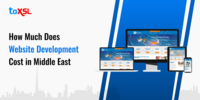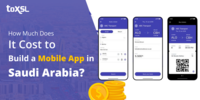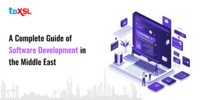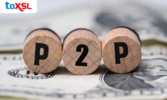- Oct 22, 2024
Share this post on:
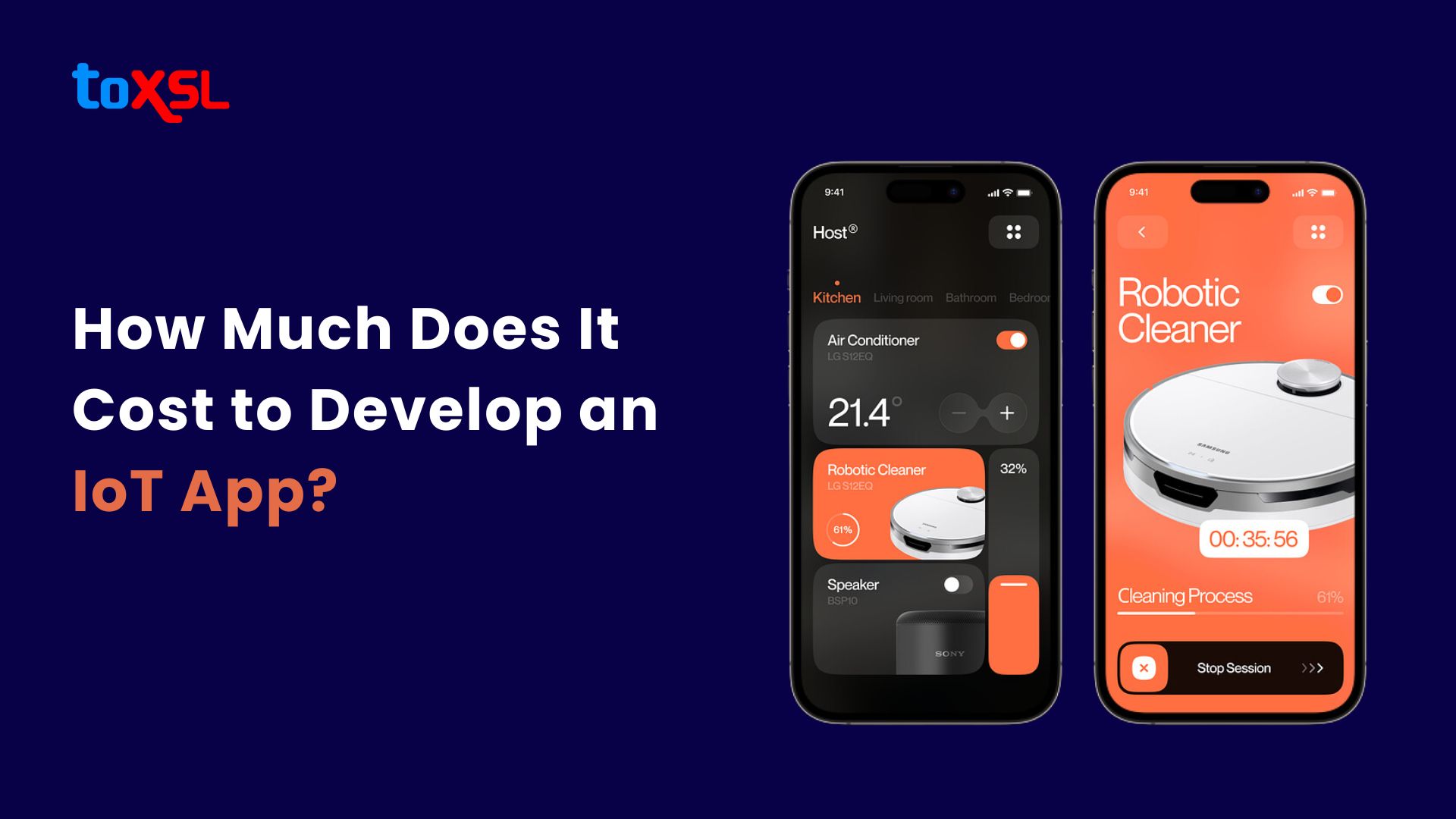
Do you want to develop a smart device that will help you transform how people interact with their homes? Wondering how much it costs to develop an innovative IoT app for your business?
The Internet of Things (IoT) is integrating into consumers' lives,enterprise operations, and government functions. According to a recent report from McKinsey, IoT can create an annual economic impact ranging from $3.9 trillion to $11.1 trillion by 2025.
However, when considering the costs associated with developing an IoT application, business owners see them as complex and expensive.
But is it really true? What steps can business owners take in order to keep the process simple and cost-effective? But, before diving deep into the article, let us learn about the cost associated with IoT apps.
Cost of Developing an IoT App
The Internet of Things (IoT) is revolutionizing how we interact with technology, connecting devices and systems to enhance efficiency and convenience. As businesses increasingly recognize the potential of IoT applications, understanding the costs involved in their development becomes crucial.
Overview of IoT App Development Costs
The cost of developing an IoT app can vary significantly based on several factors, including complexity, functionality, and the specific requirements of the project. Generally, the development costs can be categorized into three main tiers:
Basic IoT Apps: These applications typically range from $20,000 to $50,000. They connect a limited number of devices and offer basic functionalities.
Intermediate IoT Apps: For applications that link between 10 to 50 devices with moderate features, costs can range from $50,000 to $80,000.
Complex IoT Apps: Sophisticated applications integrating 50 to 100 devices can cost anywhere from $80,000 to $150,000 or more.
Key Factors Influencing IoT App Development Cost
Here are a few factors that are influencing the IoT app development cost:
1. Project Scope and Complexity
The scope and complexity of the project are primary determinants of cost. More complex applications require advanced functionalities such as data encryption, real-time analytics, and multi-device synchronization. These features significantly increase development time and resources needed.
2. Hardware Requirements
Hardware costs can constitute 70-80% of the total budget for an IoT project. This includes expenses related to sensors,networking equipment, and other components necessary for device connectivity. The type and complexity of the hardware directly influence overall costs.
3. Software Development
The software component encompasses both mobile app development and back-end infrastructure. Developing apps for multiple platforms (iOS,Android) increases costs due to additional coding and testing requirements. Moreover, integrating cloud services for data storage and processing adds further expenses.
4. Integration and Testing
Integration involves ensuring that all components of the IoT system work seamlessly together. This stage typically accounts for20–30% of total project costs. Rigorous testing is essential to identify bugs and ensure reliability before deployment.
5. Maintenance and Support
Post-launch maintenance is critical for any IoT application.Businesses should budget at least 10-15% of initial development costs annually for maintenance, updates, and customer support. This ongoing investment is vital for keeping the application functional and secure.
Breakdown of Costs by Development Stages
Understanding the different stages involved in developing an IoT app helps in estimating costs more accurately:
1. Planning and Research: This initial phase involves market research, defining user needs,and outlining app functionalities. Costs typically range from $5,000to $15,000, depending on the depth of research required.
2. Design: Creating wire-frames and UI/UX designs is crucial for user engagement. Professional design work can cost between $10,000and $30,000, influenced by the complexity of the interface.
3. Development: The actual coding phase varies greatly based on app complexity.
- Simple apps may cost approximately $30,000-$40,000.
- Intermediate app costs may range from $50,000 to $80,000.
- Complex apps may cost over $80,000.
4. Integration and Testing: As mentioned earlier, this stage is crucial for ensuring all parts function together effectively. It often requires a significant portion of the budget due to extensive testing protocols needed in IoT environments.
5. Deployment: Once testing is complete, deploying the application involves additional costs related to server setup and configuration for cloud services.
6. Maintenance: Finally, ongoing maintenance includes regular updates and troubleshooting support that keep the application running smoothly over time.
Benefits of Hiring an IoT App Development Company
As the Internet of Things (IoT) continues to reshape industries,businesses are increasingly recognizing the importance of specialized expertise in developing IoT applications. Hiring an IoT app development company can provide significant advantages that go beyond mere technical skills. This blog explores the key benefits of partnering with a professional IoT development firm.
1. Expertise and Experience
Specialized Knowledge: IoT app development requires a unique blend of skills, including hardware integration,software development, and data management. An established IoT development company brings a wealth of experience, having worked on various projects across different industries. This expertise ensures that your application is developed using best practices and the latest technologies.
Proven Track Record: Many IoT development companies have portfolios showcasing their past work, which can provide insights into their capabilities. Reviewing these projects allows businesses to gauge the company's proficiency in delivering high-quality applications tailored to specific needs.
2. Cost-Effectiveness
Reduced Development Costs: While hiring an in-house team may seem like a viable option, it often incurs higher costs related to salaries, benefits, and ongoing training. In contrast, outsourcing to an IoT app development company can be more cost-effective. These firms typically offer flexible pricing models that allow businesses to pay for only the services they need.
Access to Advanced Tools and Technologies:Professional IoT companies invest in the latest tools and technologies that facilitate efficient development processes. By leveraging these resources, businesses can save on costs associated with purchasing software or hardware independently.
3. Faster Time-to-Market
Streamlined Development Process: An experienced IoT app development company has established workflows and methodologies that expedite the development process. Their familiarity with various platforms and tools enables them to quickly prototype and iterate on designs.
Agile Methodologies: Many companies adopt agile methodologies, allowing for iterative development and continuous feedback from clients. This approach not only speeds up the process but also ensures that the final product aligns closely with business goals and user needs.
4. Scalability and Flexibility
Adaptable Solutions: As business needs evolve, so too must the applications that support them. An IoT development company can create scalable solutions that grow with your business,ensuring that your application remains relevant as new technologies emerge or user demands change.
Integration Capabilities: A professional firm can seamlessly integrate your IoT app with existing systems and platforms, enhancing functionality without disrupting current operations. This flexibility is crucial for businesses looking to expand their IoT capabilities over time.
5. Enhanced Security
Robust Security Measures: Security is a critical concern in IoT applications due to the vast amount of data being transmitted between devices. Established IoT app development companies prioritize security by implementing industry-standard protocols and practices to protect sensitive information.
Ongoing Support and Maintenance: After deployment, these companies often provide ongoing support and maintenance services to address any vulnerabilities or issues that arise, ensuring that your application remains secure over time.
6. Data-driven Insights
Real-Time Analytics: IoT applications generate vast amounts of data that can be analyzed for actionable insights. A skilled development team can implement advanced analytics features that allow businesses to monitor performance metrics in real-time,facilitating informed decision-making.
Predictive Maintenance Capabilities: By leveraging data collected from connected devices, businesses can identify patterns that indicate potential equipment failures before they occur. This predictive maintenance capability helps reduce downtime and maintenance costs.
7. Focus on Core Business Functions
Delegating Technical Challenges: By outsourcing IoT app development, businesses can focus on their core competencies while leaving technical challenges to experts. This delegation allows internal teams to concentrate on strategic initiatives rather than getting bogged down by complex technical details.
8. Innovation and Competitive Advantage
Access to Cutting-Edge Technologies: Partnering with an IoT app development company provides access to innovative technologies and solutions that may not be feasible for individual businesses to develop on their own.
9. Staying Ahead of Competitors
In today’s fast-paced market, having a robust IoT solution can set a business apart from its competitors. A professional firm can help create unique features or functionalities that enhance the user experience and drive customer engagement.
Wrapping Up
In this blog, we have discussed the cost of IoT app development,factors associated with the cost, and benefits of hiring an IoT app development company.
The demand for IoT application development is increasing. Users are seeking cutting-edge technological solutions that simplify their lives, enhance safety, and enable remote work. At the same time, there is a lack of available IoT solutions on the market. As a result, innovative applications that help consumers and businesses save time and effort are becoming increasingly popular.
Interested in developing an IoT app? Connect with ToXSL Technologies, a leading Mobile app development company in Dubai. We have helped numerous businesses create the best IoT solutions for their businesses. Request a quote.
Frequently Asked Questions
1. How much time does it take to build an IoT app?
A basic IoT application may take around one to six months to develop; more complex projects could take up to a year or more. Collaboration with experienced developers can help streamline the process and provide a more accurate timeline tailored to specific project needs.
2. Why is ToXSL Technologies the best IoT app development company?
ToXSL Technologies is recognized as a leading IoT app development company due to our blend of experience, comprehensive service offerings, innovative technology use, and strong client relationships. These attributes position us as a reliable partner for businesses looking to develop effective IoT solutions.
3. What are the key features of the Internet of Things?
Here are the key features of IoT:
- Connectivity: IoT devices connect through various networks, including Wi-Fi, Bluetooth, and cellular systems.
- Data Collection: These devices collect real-time data from their environments through embedded sensors.
- Automation: IoT facilitates automation by allowing devices to perform tasks autonomously based on the data collected.
4. What are the applications of IoT?
IoT has applications across multiple sectors:
- Smart Homes: Devices like smart thermostats, lighting systems, and security cameras enhance convenience and energy efficiency in residential settings.
- Healthcare: Wearable devices monitor patients' vital signs and send alerts to healthcare providers in real time, improving patient care.
- Agriculture: IoT technologies are used for precision farming by monitoring soil conditions and crop health to optimize resource use.
